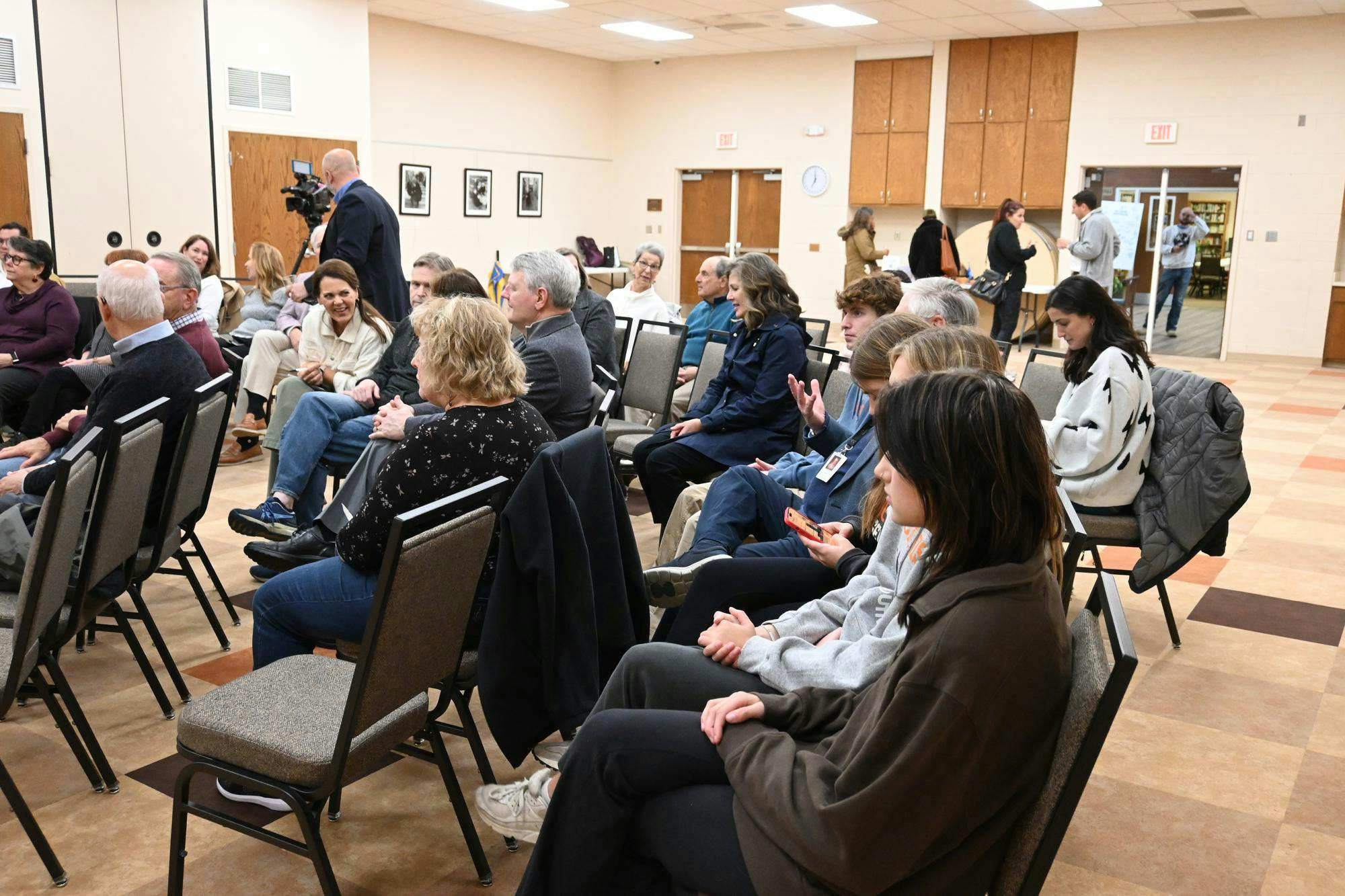The United States Attorney General’s “United Against Hate” initiative aims to educate and engage local communities around combatting hate crimes. The Jewish Federation of Greater Nashville recently hosted local U.S. Attorney Henry Leventis and others from his office and local law enforcement to do just that. The event featured Leventis, Assistant U.S. Attorneys Nani Gilkerson and Jae Lim, FBI Supervisory Special Agent Richard Baer, FBI Special Agent Lucas McTaggart, Metro Nashville Police Lt. Jason Sharpe, Victim Assistant Specialist for the U.S. Attorney John Hernandez, and Executive Assistant U.S. Attorney Mark Wildasin.

U.S. Attorney Henry Leventis introduces the panel discussion
Leventis introduced the initiative and said enforcement against hate crimes remains a top priority for the justice department. “I believe the federal government’s commitment to protecting civil rights is what distinguishes us from countries around the world. That commitment is alive and well in the U.S. Attorney’s office.” Leventis also said the administration’s support of Israel in its fight against terrorism remains staunch. “President Biden and Attorney General Garland are unequivocal in their condemnation of October 7.”
A top priority of the initiative is helping to identify hate crimes. Gilkerson said in simple terms, hate crimes are designed to send a message to the victim or community. “It is a crime motivated by hate against the victim,” she said. There are seven categories of hate crimes, religion is one of those. Federal law protects against illegal discrimination.
Lim said the federal government has several ways of identifying and addressing a violation of a civil right, and described how a hate incident can be a violation of a civil right. “The language must be specific as to the time, place, and a specific slur against a community. It can be discrimination in housing, schools, and employment contracts.” He cited examples in the workplace, such as Jewish employees being passed over for promotions or raises, or antisemitic slurs that go undisciplined by employer.
According to Lim, a hate crime is where a hate incident and a civil rights violation intersect. And one of the biggest challenges facing the U. S. Attorneys’ efforts to prosecute hate crimes continues to be underreporting. “It’s a serious issue. We need to report every single incident,” says Gilkerson. Citizens who believe they have experienced a hate crime should report it to local law enforcement, the FBI, and in an emergency, always call 9-1-1.

Panelists discuss hate crime education and reporting
Antisemitism continues to rise and in Nashville it has been rising for more than a year. Gilkerson says FBI reports of crimes based on race, ethnicity, and ancestry have risen by more than 59% over the last year, and crimes based on religion by over 17%.
An area where antisemitic incidents is causing alarm locally is on campuses and in schools. Lim said social media is one area that is increasingly difficult for students. “It’s a challenge. If there is a threat on social media, the school doesn’t necessarily have to report it. But the parent should report it.”
Even when an incident is reported, the response by a school can be less than satisfactory, leaving students frustrated and isolated. Sara Hanai’s daughter is a sophomore at Franklin High School in Williamson County. During a group project in an English class, a classmate created a monster character adorned with a star of David and with stereotypical Jewish features. When Hanai’s daughter reported it to the teacher, she received no response. “The teacher didn’t say anything, even after my daughter emailed her to discuss it with the other students,” said Hanai. “There should be a way for students to learn why these types of incidents are hurtful. To learn rather than to punish.” Hanai said after October 7, she sent a message to the principal describing that her daughter was sad and that she has relatives and friends in Israel, and again received a lukewarm response. “He said he spoke with the classmates, and they understood they made a poor choice. But no one ever spoke with my daughter. She feels no one gets how she feels, and there has been no closure for her.”

Students and community members listen to panel
For college students, it can be frightening to draw attention to oneself. Jonah Biller is a junior at Ensworth School. He attended with several classmates and a teacher. He said, “My brother is a freshman in college, but he is uncomfortable highlighting himself because he doesn’t want to be a target.” Gilkerson acknowledged the difficulty and risk associated with reporting. “It takes courage, and it is part of our job to support people and hold accountable those who discriminate. Nobody chooses to be a victim.”
Not everyone in attendance was part of the Jewish community. Jeff and Caroline Paine are concerned community members who are part of the Church of Jesus Christ of the Latter Day Saints. They were surprised to learn about the proliferation of hate crimes and antisemitism. “We had no idea this was so huge,” said Jeff Paine, “There are so many incidents that are painful, but at least people are protected. We just wish people would love each other more.”
To report a hate incident or hate crime, visit www.justice.gov/hate crimes. To report an incident in a school or campus, visit the Jewish Federation of Greater Nashville at www.jewishnashville.org/antisemitismreport.
The Jewish Observer is published by The Jewish Federation of Greater Nashville and made possible by funds raised in the Jewish Federation Annual Campaign. Become a supporter today.

